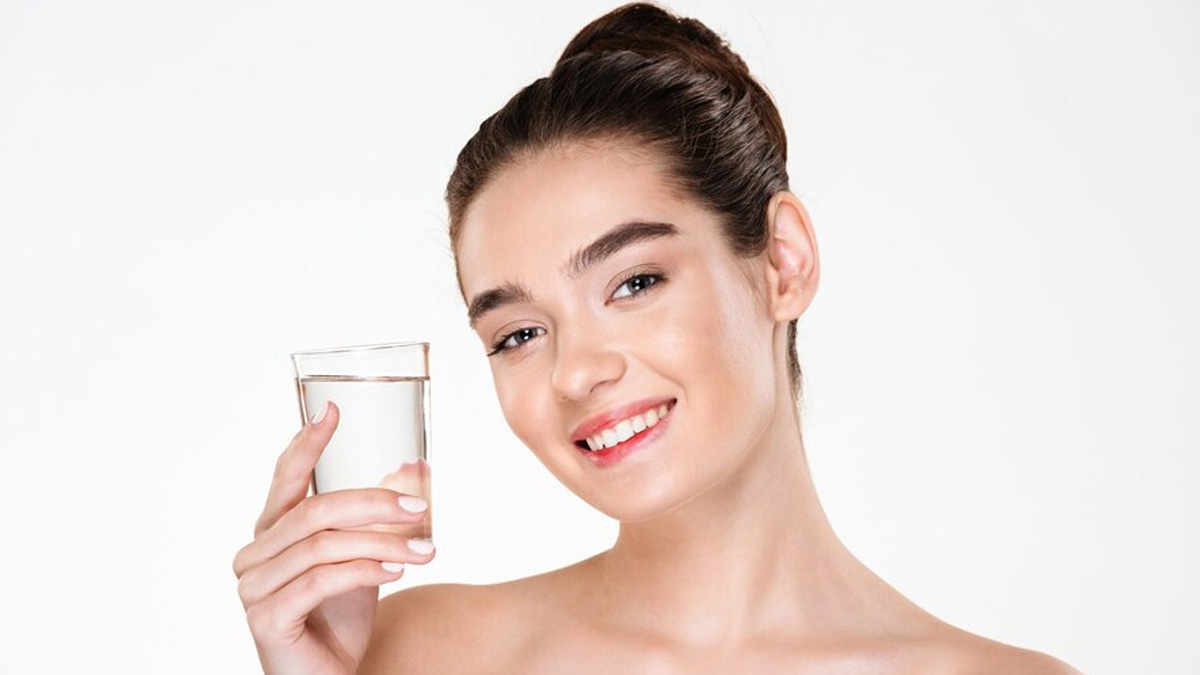
You must have heard that water is good for your skin and it is important to keep yourself hydrated. But is it true that something as simple as staying hydrated can significantly impact the health and appearance of your skin? To shed light on the same, we spoke to our expert, Dr Batul Patel, Leading Celebrity Dermatologist, Founder and Medical Director, The Bombay Skin Clinic, who explained the importance of hydration for skin health.
Table of Content:-
Importance of Hydration for Skin Health

Skin, being the largest organ of the body, has multiple functions, including serving as a barrier against pathogens and regulating temperature. Dr Patel added, “Adequate hydration supports these functions and contributes to maintaining skin elasticity, softness, and overall appearance. Lack of hydration can lead to dry, flaky, and irritated skin, which may eventually contribute to premature signs of ageing, such as fine lines and wrinkles.”
According to Parkview Health, As you grow older, it becomes necessary to hydrate your skin because the protective barrier function, responsible for retaining moisture, can deteriorate due to environmental harm or insufficient water consumption.
How Does Water Affect the Overall Health of Your Skin
Water plays a critical role in multiple physiological processes, including circulation, digestion, and detoxification. Dr Patel listed some of its roles as follows:
- Circulation: Adequate water intake helps in good blood flow, which ensures that nutrients and oxygen reach the skin cells efficiently.
- Detoxification: Water assists in flushing out toxins from the body, which may otherwise contribute to issues like acne and dullness.
- Cell Turnover: Proper hydration can support the process of cell turnover, helping the skin to repair itself and produce new cells that make the skin look more youthful.
- Barrier Function: Hydration helps maintain the skin's barrier function, which serves to lock in moisture and keep out harmful microbes and toxins.
Also Read: Mastering Your Skincare Routine: Expert Tips for Healthy, Radiant Skin
Recommended Daily Water Intake for Skin Health

Dr Patel noted, “While individual needs can vary, a common recommendation for daily water intake is about eight-ounce glasses of water a day, known colloquially as the ‘8x8 rule’. This may help to maintain adequate hydration for general health, including that of your skin. Some experts may recommend more or less based on your specific needs, climate, and level of physical activity.”
Factors That Influence Your Individual Hydration Needs
Dr listed various factors that can influence your individual hydration needs, as follows:
- Climate: Hot or dry climates may require you to consume more water
- Physical Activity: Engaging in intense exercise requires increased water intake
- Diet: Consuming foods rich in water content can contribute to hydration
- Age and Gender: Different life stages and hormonal factors can influence hydration needs
- Health Conditions: Certain conditions or medications may affect how much water you need
Also Read: Impact Of Seasonal Changes On Skin: Expert Insights On Adapting Your Skincare Routine
Foods That Support Skin Hydration and Glow

Besides water, several foods can contribute to skin hydration:
- Cucumber: High water content and contains silica, known for its ability to boost moisture
- Watermelon: Contains vitamins A and C, which are good for skin health, along with a high water content
- Avocado: Contains healthy fats that support skin hydration
- Salmon: Rich in omega-3 fatty acids which can help to keep the skin moisturised
- Nuts and Seeds: Contain essential fatty acids and vitamin E that support skin health
[Disclaimer: This article contains information provided by a registered healthcare professional and is for informational purposes only. Hence, we advise you to consult your expert if you are dealing with any skin conditions.]
Also watch this video
How we keep this article up to date:
We work with experts and keep a close eye on the latest in health and wellness. Whenever there is a new research or helpful information, we update our articles with accurate and useful advice.
Current Version